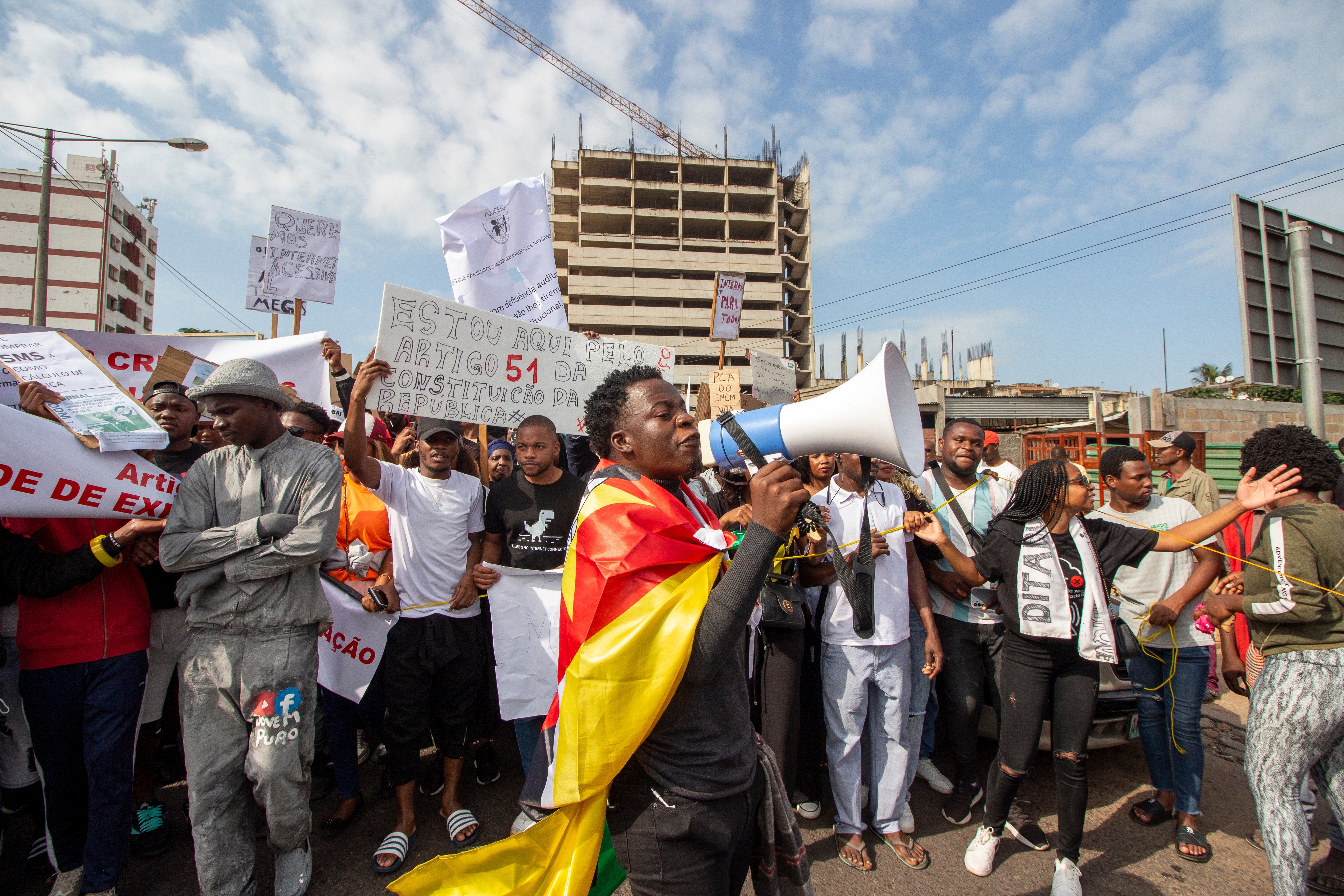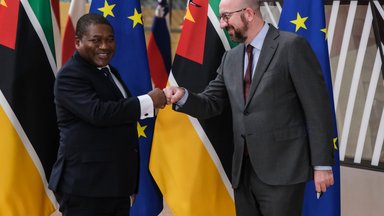Mozambique
Where are the EDR mechanisms in post electoral violence?

A man dressed in a Mozambican flag addresses the crowd with a megaphone during a demonstration, while participants hold banners for their cause
© ShutterstockSince the announcement of Mozambique's election results, Frelimo’s (Frente de Libertação de Moçambique) declared victory has ignited public outcry and sparked countrywide protests. These demonstrations have been met with forceful crackdowns by law enforcement. Fresh reports of protests continue to emerge, as citizens decry alleged irregularities observed during the electoral process.
Multiple observation missions, including the European Union Election Observation Mission (EU EOM), Southern African Development Community Electoral Commission Forum (SADC ECF), and the African Union, reported discrepancies. During the voter registration phase, access varied across provinces and districts, resulting in notable irregularities not only on election day but also during pre-polling procedures. Observers noted instances where access to registration was more restricted in opposition-leaning areas, while other areas benefited from more comprehensive access. These issues have fuelled public unrest, leading to injuries and even deaths among protestors.
In an interview with Deutsche Welle, Renamo’s gubernatorial candidate, Manuel de Araújo, highlighted additional irregularities, including ballot-stuffing in Frelimo’s favour in Quelimane and a shortage of critical voting materials. These logistical issues, he contends, led to the disenfranchisement of opposition supporters, with names reportedly removed from voter rolls in opposition-leaning districts. The African Union’s preliminary statement similarly noted potential mismatches in the voters' register, underscoring the need for verification measures to bolster public confidence in the election's legitimacy.
Challenges in administering the elections compounded these issues. According to the African Union Election Observation Mission (AUEOM), difficulties included delayed election law reforms, poorly defined roles among courts, budget deficits, and security concerns due to insurgency threats in Cabo Delgado province. The SADC ECF also noted funding shortfalls impacting the Mozambican National Electoral Commission (CNE).
Exacerbating tensions are the recent high-profile murders of Elvino Dias and Paulo Guambe, close associates of opposition leader Venâncio Mondlane of the PODEMOS party. Mondlane has publicly claimed victory and called for protests, though he is reportedly in hiding abroad. The assassination-style killings have intensified an already volatile environment, with many Mozambicans supporting their right to protest perceived electoral injustices. However, the destructive turn in protests has come at a heavy cost to both life and national stability.
Amidst the unrest, questions arise: What efforts have political contenders made to resolve these issues peacefully? What role does Mozambique's political code of conduct play in ensuring responsible, peaceful negotiation?
The situation reflects the interwoven political, economic, and social challenges facing Mozambique. An article by Tendai Mbanje, published by FNF, titled “Elections Amid Insurgency and Economic Crisis”, notes that Mozambique’s democratic ranking has declined significantly, with the Democracy Index score dropping from 5.3 in 2006 to 3.5 in 2023—a decline of 34%. This erosion of democratic norms fuels concerns over the country’s capacity to conduct credible elections.
Elections amid insurgency and economic crisis

Mozambique will hold presidential and parliamentary elections on the 9th of October marking the end of President Filipe Nyusi's two-term tenure. Nyusi has been praised for upholding the constitution and not seeking a third term, unlike the trend on the continent. Elections are expected amid insurgence, rising political tensions, and widespread economic challenges. Poverty, fueled by systemic corruption, poor governance, and incompetence, has led to widespread discontent across various sectors of society.
Neighbouring countries are also reacting. South Africa has closed its Lebombo border—a critical trade route for Mozambique and other SADC countries—while Zimbabwe has taken similar steps. Meanwhile, Human Rights groups have called on Mozambique’s government to address human rights violations linked to the protests. On 13 November 2024, SADC Heads of State are set to meet in an extraordinary summit to seek solutions for Mozambique’s crisis, with hopes of restoring stability in a way that satisfies the Mozambican people.
There is an urgent need to deploy effective Election Dispute Resolution (EDR) mechanisms to support Mozambique’s fragile democracy. Public participation in EDR processes could bolster transparency and reinforce trust in democratic institutions. Despite recent amendments to electoral legislation passed in May 2024 aimed at enhancing transparency, Mozambique’s electoral laws still lack effective implementation measures. As Paul Fauvet of Agência de Informação de Moçambique reports, these amendments allow district courts to order vote recounts if irregularities are found. However, this provision was only passed in August, leaving inadequate time to apply the law during this election cycle.
Alternative Election Dispute Resolution (AEDR) mechanisms could play a complementary role by offering faster, more flexible methods for resolving conflicts. According to an article by ACCORD, AEDR approaches such as negotiation, mediation, fact-finding, and arbitration can provide efficient, cost-effective alternatives to traditional litigation in electoral disputes. While these mechanisms cannot replace formal processes, they can help streamline the judicial burden, ensuring swifter resolutions.
With the silence of the CNE and judiciary over Mozambique’s contested election results, questions loom over the country’s future. The legal framework for EDR requires urgent reforms to clarify procedural ambiguities and define the roles of the CNE and STAE more effectively.
As the SADC summit convenes, Mondlane is expected to address his supporters virtually from Europe. Mozambicans and observers across the region hope that decisive, inclusive leadership will emerge to restore peace, protect democratic integrity, and prevent further destabilisation in Southern Africa.
